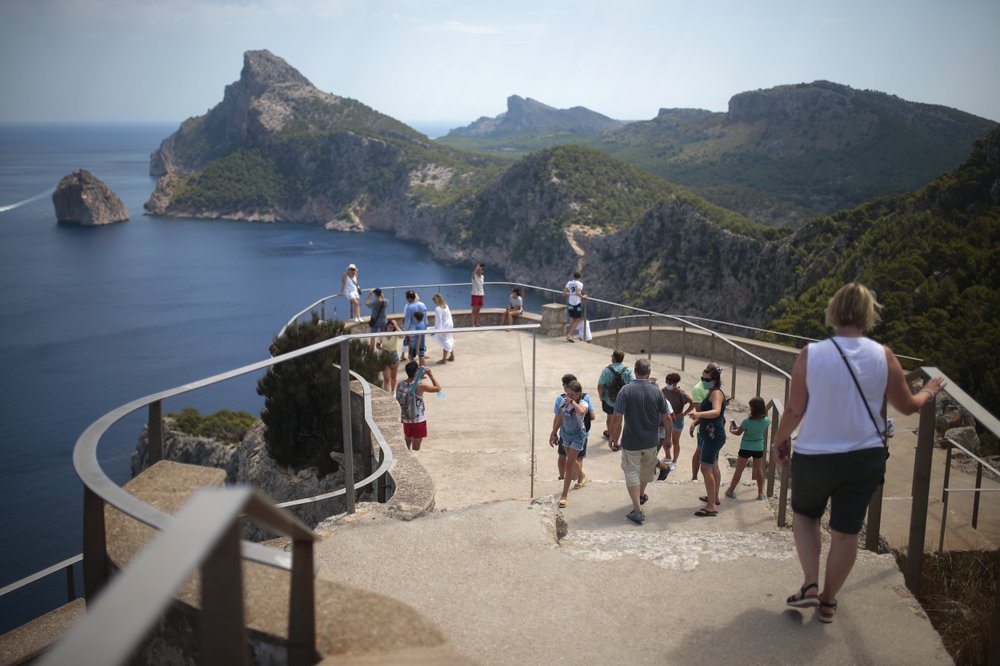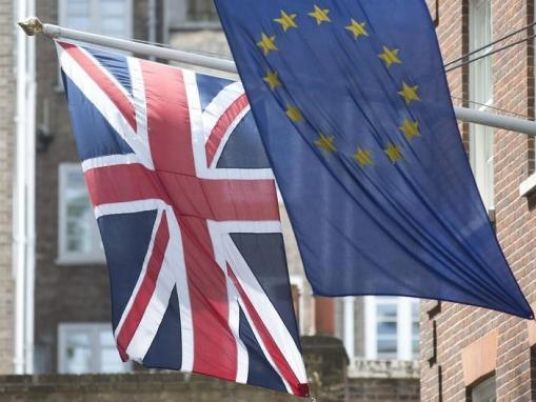
LONDON (AP) — Britain’s effective ban on travel to Spain following an upswing in coronavirus cases in that country’s northeast on Tuesday hammered home the lack of a comprehensive, continent-wide approach to suppressing the virus and giving hard-hit, tourism-reliant economies a chance to rebound.
The UK government’s recommendation against all but essential travel to the whole of Spain means that all travelers arriving in Britain from that country will have to undergo a 14-day quarantine.
The move not only dashed British holidaymakers’ hopes for a getaway this summer, but also fanned renewed uncertainty within Europe’s tourism industry over how to plan ahead amid authorities’ responses to new COVID-19 outbreaks.
Indicative of this were decisions by holiday companies TUI UK and Jet2 to suspend flights to Spain, which is traditionally the most popular summer destination for British vacationers.
“The UK government must work closely with the travel industry as this level of uncertainty and confusion is damaging for business and disappointing for those looking forward to a well-deserved break,” TUI UK said in a statement.
British Prime Minister Boris Johnson on Tuesday defended the decision, saying it was his government’s duty to protect the UK from a fresh coronavirus spike.
“Let’s be absolutely clear about what’s happening in Europe, amongst some of our European friends. I’m afraid you are starting to see in some places the signs of a second wave of the pandemic,” Johnson said.
“I’m afraid if we do see signs of a second wave in other countries, it is really our job, our duty, to act swiftly and decisively.”
Johnson that there could be further changes to travel advice down the line affecting all of Europe.
The UK has the highest official coronavirus death toll in Europe with more than 45,000 deaths. One of the reasons cited for that is that many travelers brought the virus back during the February school break after skiing trips in France, Italy and Spain.
Professor Keith Neal, an epidemiologist at the University of Nottingham said it makes sense to advise against travel to Spain amid the summer holiday season,
“Some people have criticized the lack of notice but with cases rising any delay would only increase cases in the UK,” Neal said.
But Spanish Prime Minister Pedro Sanchez called the new recommendation “a mistake,” saying that the upsurge in new COVID-19 cases is only focused in the regions of Catalonia and Aragon and is much less severe than the number of cases reported in the UK itself.
Sanchez spoke as figures were released showing that his country wiped out more than a million jobs in the second quarter of this year.
Spain’s official statistics agency INE said on Tuesday that most of the 1.07 million lost jobs were in the service sector, with the worst-hit areas being Catalonia, Andalusia and Madrid.
Spanish Foreign Minister Arancha Gonzalez Ayala tried to strike a conciliatory tone, saying that Madrid is trying to get the British government to concentrate on the scientific data since the outbreaks are contained in specific areas within Spain, while coronavirus infection rates on the country’s vacation islands are much lower than the UK.
Spain is still in talks with the British government, “trying to find a solution which meets epidemiological criteria,” Ayala told a press conference in Athens during an official visit to Greece Tuesday.
Meanwhile, Madrid’s regional government on Tuesday made the use of face masks mandatory in all public areas and limited the number of people that can gather in one place as part of a drive to curb new coronavirus outbreaks.
Regional government head Isabel Díaz Ayuso said that no more than 10 people can be present at private gatherings, while nightlife venues must close their doors at 1 a.m. — early by Spanish standards.
Díaz Ayuso said an information campaign will focus on young people, who are largely blamed for spreading the coronavirus through their social life. She said young people “have it in their hands to reverse the trend.”
Britain’s travel advice comes on the heels of similar decisions by other European governments, including Norway, which ordered a 10-day quarantine for people returning from the entire Iberian peninsula, and France, which urged its citizens not to visit Catalonia.
German authorities didn’t follow the UK’s route on Spain but did advise against travel to Catalonia and two other Spanish regions in light of rising coronavirus infections.
A note posted by the foreign ministry on Tuesday advises against “nonessential tourist travel” to Catalonia, its western neighbor, Aragón, and Navarra in northern Spain. It cites a rise in infection figures and “local closures.”
Meanwhile, Germany’s national disease control center appealed to its own citizens to keep to distancing, hygiene and mask-wearing rules and halt an upturn in new coronavirus infections.
Lothar Wieler, the head of the Robert Koch Institute, said developments over the past two weeks are “really very worrying.”
Wieler pointed to studies indicating that people have become less concerned about COVID-19 and less accepting of virus control rules.
Asked whether Germany is seeing the beginning of a second coronavirus wave, Wieler replied: “We don’t know if this is the beginning of a second wave, but of course it could be. It would begin with rising figures … if we all keep to these rules, I am still optimistic that we can prevent this.”
___
Hadjicostis reported from Nicosia, Cyprus, and Hatton from Lisbon, Portugal. Geir Moulson in Berlin contributed.
Image: Tourists visit a viewpoint in Pollença, in the Balearic Island of Mallorca, Spain, Tuesday, July 28, 2020. Britain has put Spain back on its unsafe list and announced Saturday that travelers arriving in the U.K. from Spain must now quarantine for 14 days. (AP Photo/Joan Mateu)




